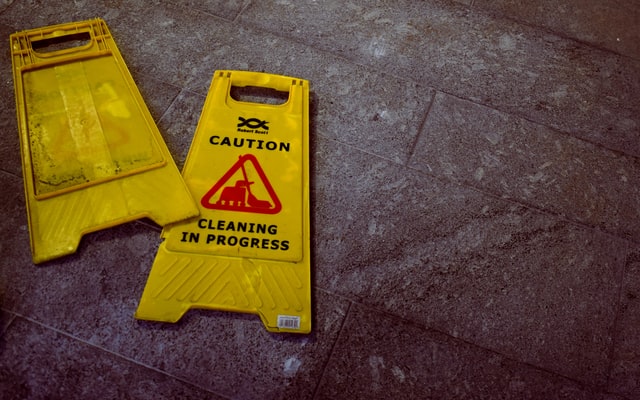Deposit disputes are the last thing either tenant or landlord wants at the end of a tenancy. The tenant wants their money back, and the landlord doesn’t want to have to withhold it because doing so means there must be a problem in the property that the tenant is responsible for, and that the deposit is going to have to pay for. It’s bad news all round. And this is why an inventory is always so useful; disputes may still happen, but they can be cleared up a lot more quickly and everyone can move on.
So what is the biggest reason that leads to deposit disputes? Perhaps unsurprisingly, its cleanliness. Next in line is damage, and the third reason for landlords to withhold the deposit is having to redecorate. What you might not expect to find is that the fourth reason is gardening problems and that rental arrears come in way down the list at number five.
 Photo by Oliver Hale on Unsplash
Photo by Oliver Hale on Unsplash
Increase In Deposit Disputes
Between April 2019 and March 2020, there was a definite increase in deposit disputes, up by five percent on the previous year. This could, of course, be because more tenancies were taken up during that year than the previous year, meaning that more tenants were leaving properties too.
The problem is often not down to neglect or an intent to cause any harm or problems; it’s simply that, particularly in the case of the cleanliness of the property, that the inventory was not clear (assuming there was an inventory at all) about exactly what the state of the property was. Some inventories rely far too much on photographs, for example, whereas a photo along with a description is much more helpful.
What’s even more helpful is ensuring there is a proper check-in and check-out; any queries can be answered and any doubts put to rest. Although it might take a little more time, although it might cost a little more money, it does mean that deposit disputes are much less likely.
Contact Looksy Inventories Today
To put your mind at ease, contact Looksy Inventories today. We understand the entire inventory process and produce easy-to-read, detailed reports that both landlord and tenant can agree to before the tenancy begins.